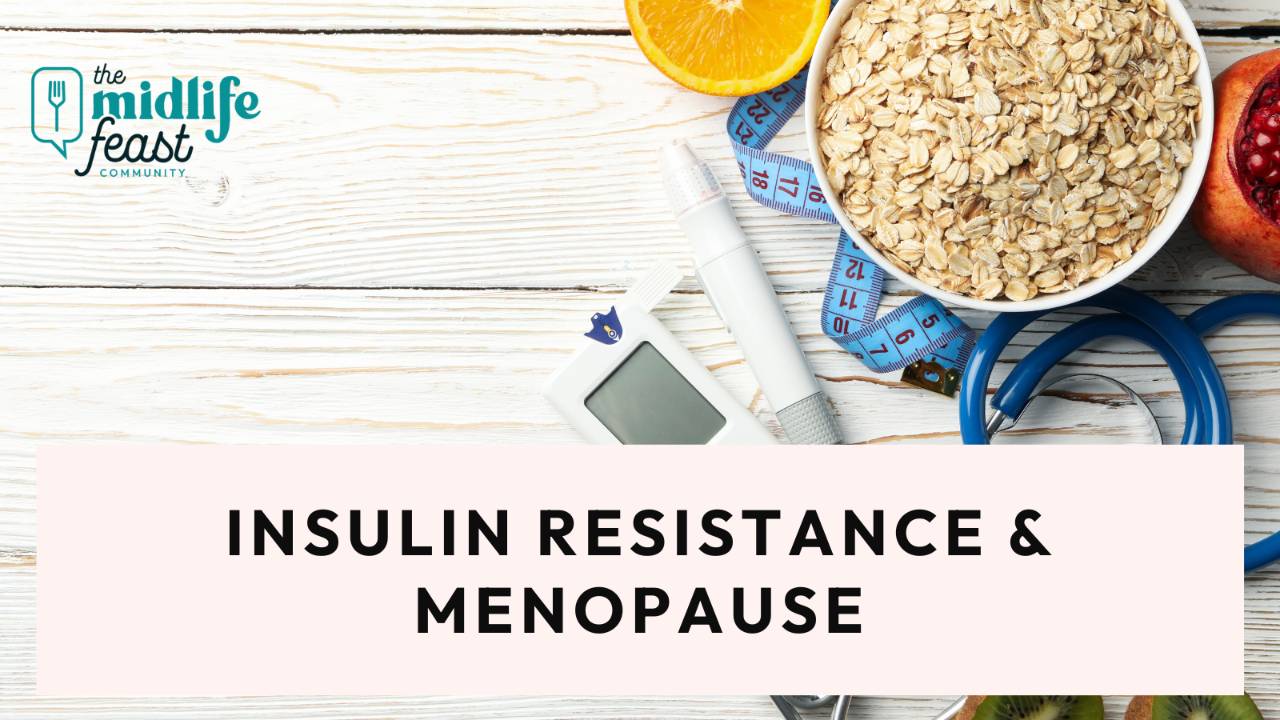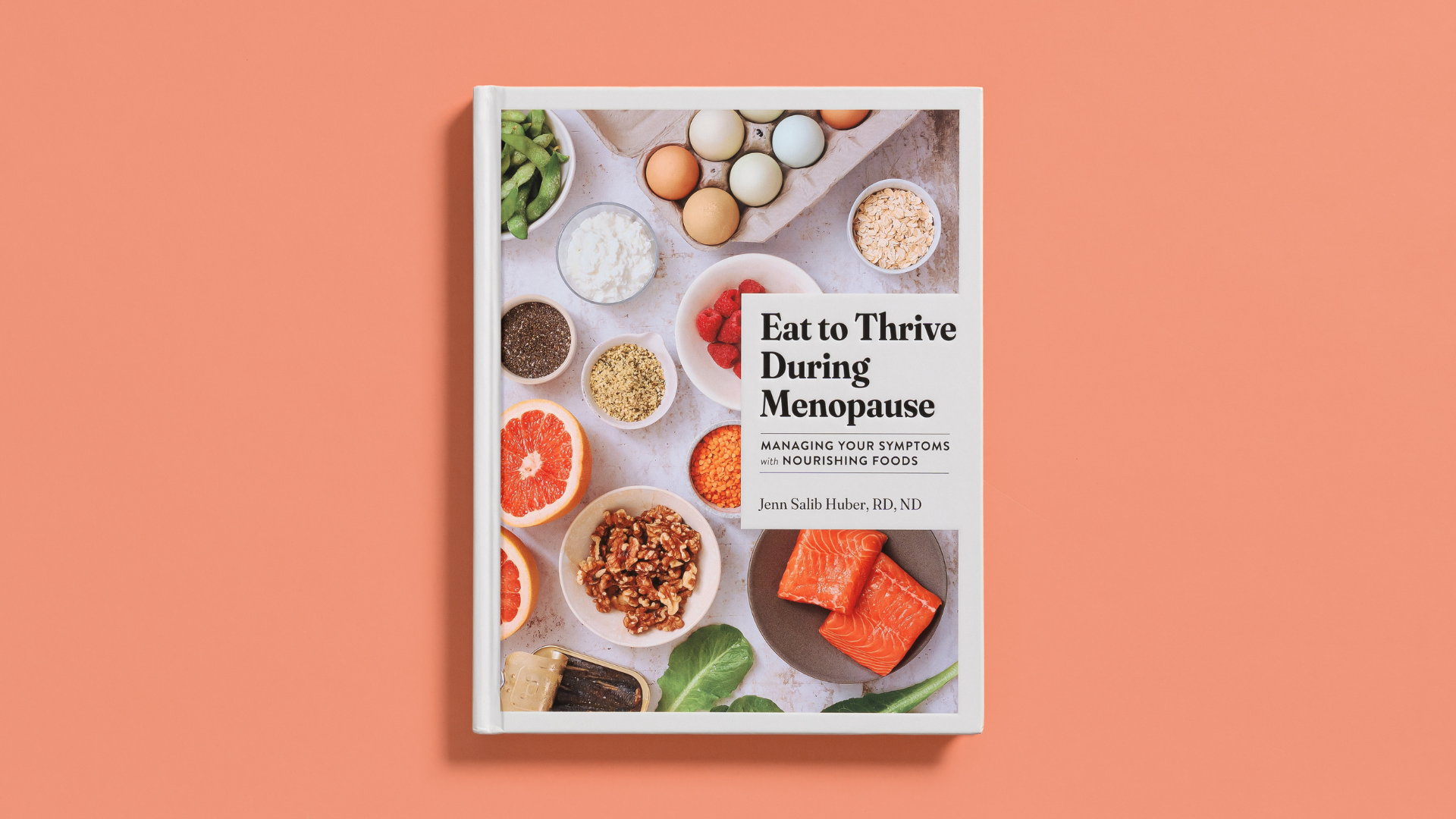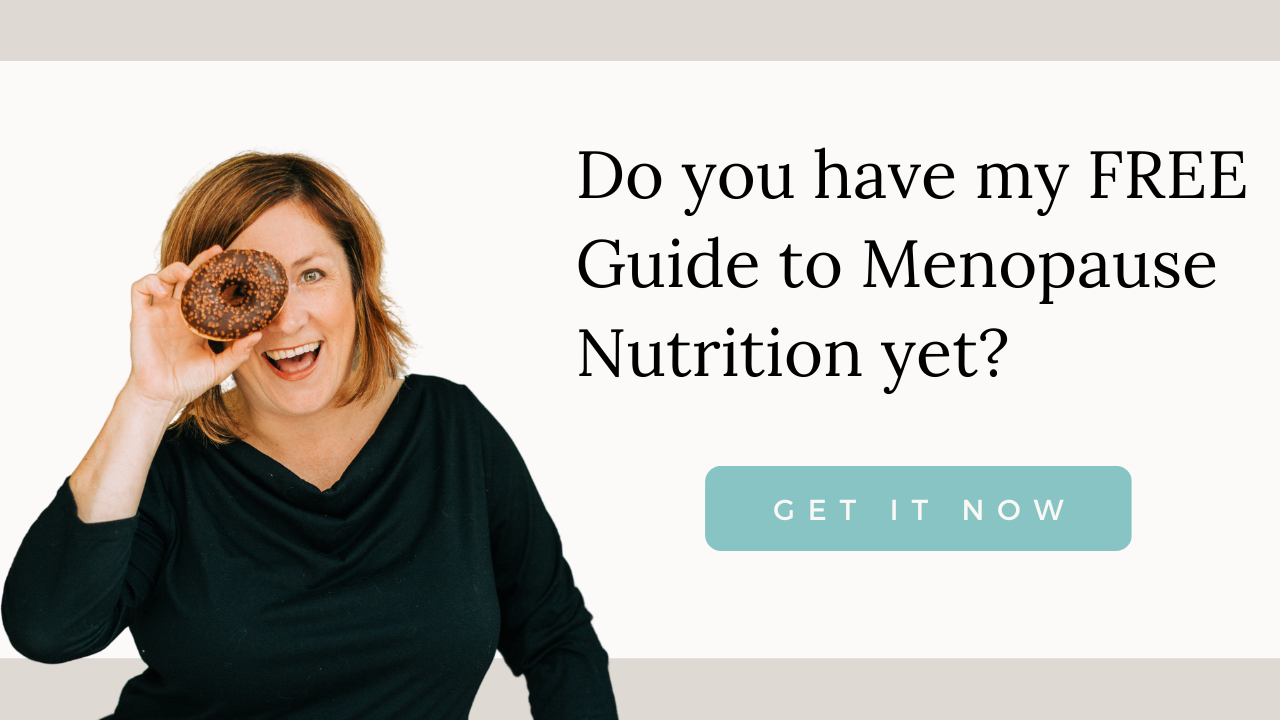Insulin resistance and menopause - A new epidemic?

Insulin...insulin resistance...pre-diabetes. You'd have to be living under a rock not to have at least heard of these, especially lately as diet culture continues to take aim at women in midlife. I shared this reel on Instagram (and Tiktok if you hang out there) pointing out that insulin is actually a satiety hormone. And as a result, the comment section was flooded with comments like this:
- " I had NO idea! Thank you so much for sharing this. It’s definitely got me thinking. "
- "I never knew that Now I see why I'm never satisfied when I just have a protein and vegetables for dinner."
- "Any time I’ve been on a low-carb diet the cravings for carbs is so intense. ANYTHING for a sandwich. And I’m also never satisfied."
And then my inbox regularly gets messages like this one:
"Jenn, OMG. I just found out I'm pre-diabetic and was just lurking in some low-carb groups on FB when I saw your reel. And now I'm more confused than ever. Because you're right, I never feel full when I cut carbs, but how can I reverse my pre-diabetes?"
So, what's the epidemic about? Misinformation about carbs and insulin.
What is insulin and why is everyone talking about it?
Insulin is a hormone produced by our pancreas. It's released after we eat and helps to get the energy (that we get from food) into our cells. You can think of insulin like a key that unlocks a door, so it's kind of important to have, as any insulin-dependant diabetic knows.
But sometimes the "problem" isn't with the key, it's with the lock (or the door itself) so that the door doesn't open, shutting out the energy needed by the cell, and creating a backlog in our bloodstream. This is what happens with insulin resistance, or diabetes; the backlog of glucose shows up on bloodwork because the key (insulin) isn't unlocking the door (the cell) efficiently anymore. And, should more locks stop working, blood sugar would continue to rise over time. Here's another reel if you want more info about this.
The reason why this conversation comes up more in midlife is that age + the loss of estrogen increases the chances that someone will become insulin resistant or develop diabetes, which factors into our risk of developing heart disease. So yes, it is an important discussion for us to be having.
What's wrong with cutting carbs as a solution?
It seems obvious, right? If your blood sugar is high, cut the sugar, reduce the insulin, and voila! Problem solved!
Except...
1. It doesn't address the fact that the "problem" is with the lock, not the key (ie. insulin).
2. It's unnecessary, as there's ample research to back up the fact that whole-grain consumption is associated with better blood sugar control and that carbohydrates don't cause diabetes.
3. It's unsustainable because it's unsatisfying...which was the point of my reel. Insulin plays a big part in how we experience fullness...and if you don't feel full, you won't feel satisfied. Which means you'll always be looking for something more...
What can you do about insulin resistance in midlife?
Stay tuned for part 2 where I'll show you what an intuitive eating and gentle nutrition approach could look like!
But if you're lookinig for info ASAP, why not join The Midlife Feast Community where you'll find an entire module (plus recipes and community support) on insulin resistance and menopause?
Grab my Menopause Nutrition Guide
Learn how to support your menopause and midlife journey with some of my best tips and recipes.
We hate SPAM. We will never sell your information, for any reason.




